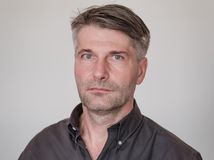„Nobody’s free until everybody’s free“ is an inspiring call of solidarity, but I wonder if, taken as it is stated, the statement is true, and what the relevant discussion in academic philosophy is.
It seems to me that there are free people and unfree people in the world right now, and this is in tension with the statement. Suppose person X who is a citizen of a democratic country A, and person Y who lives in an authoritarian country B. It seems to me that X is free and Y isn’t. It seems strange to claim that X is not free, or not really free (a notion which requires explanation).
However, I think there might be ways to rescue the statement. If we suppose:
- A person is unfree if she is under threat of a power that takes away her freedom.
- The existence of any power that takes away a person’s freedom poses a threat to anyone in the world.
1 and 2 are both substantial and controversial. This is also where my ideas end at the moment. I feel like this is an interesting issue, but I am not able to connect to the discussion to contemporary debates in academia at the moment. Thank you for your help and your time!
In some sects of Buddhism, particularly the Mahāyāna tradition, this understanding of liberation is affirmed. I think it offers a helpful comparison to the political discussion.
A commonality between the Mahāyāna approach and the use of this phrase in modern political contexts is a critical inquiry into the self: what self could be free which exists separately from others?
In the Buddhist tradition, no-self (Sanskrit: anātman, Pali: anatta) is a central doctrine, so the logical conclusion is that no such self exists which can be independently liberated. Any seeming appearance of self is a result of the aggregates (Sanskrit: skandha; Pali: khandha) where are each dependently arisen. Thus, the ‘self’ at any given moment is a historically constituted aggregation. Rather than attain liberation, an individual who has attained an enlightened state takes on the role of a bodhisattva to bring liberation to others.
In the political context, too, we could ask what individual self exists, independent of social relations, which could be free alone? If one takes – as many who will say ‘nobody’s free until everybody’s free’ do – a Marxist approach, we can recall the Theses on Feuerbach: “ … the essence of man is no abstraction inherent in each single individual. In reality, it is the ensemble of the social relations.”
In both cases, recognizing that the individual is constituted by their relations, their contingencies and their dependencies leads to a logical conclusion that these relations must be made ‘free’ (whatever that contextually means) for the individual to be made ‘free’.
Thank you so much for your contribution to this thread! I am a Buddhist (by no means a scholar) but I have never thought about the issue in such a way. It seems that a deeper understanding of freedom and how it relates to the kind of beings that we are, are crucial in the present discussion. There are many interesting points in your comments but specifically for my question, I’ll raise 2 follow-ups:
- Some may say that the freedoms they are talking about are freedom of speech, political expression, religion and so on. These freedoms are demonstrative. The freedom in the Buddhist tradition, which I have great sympathy for, seems more abstract — the unfreedom borne from my conception of self. There might be a risk that both parties are talking past each other. Furthermore, how is the Buddhist sense of freedom relevant to the political issues we face now?
- Broadly speaking, are there any scholarly studies of Buddhist Political Theory? Sometimes Buddhist practice can seem, ironically speaking, individualistic (meditation).
Thanks again for your comment! Much food for thought.
Suppose person X who is a citizen of a democratic country A, and person Y who lives in an authoritarian country B. It seems to me that X is free and Y isn’t. It seems strange to claim that X is not free, or not really free (a notion which requires explanation).
Someone using this line (and not as a mere slogan they don’t really understand) is almost certain to reject this. For instance on a classic leninist conception the super exploitation of 3rd world workers aids the exploitation of 1st world workers (and the converse is also true). Neither group is free and there is a mutual relationship between their unfreedom.
The contemporary ‚woke‘ version of this is going to be much more vague and generic after this schema has been stripped of its class character, but it will follow the same kind of line. People over here are opressed, people over there are more opressed, there is some mutual relationship between these oppressions.
Thank you for your comment! Would it be fair to say that the systematic nature of oppression/exploitation is required to reject my toy example?
I also like to push just a bit on the idea of „mutual relationship between X and Y“. Suppose country A openly criticised B and B is fully responsible for the oppressive acts which Y suffers. In this case, even if X is not as free as we thought, Y seems to suffer a different kind of oppression.
Your comment is helpful though, thanks again




















Celá debata | RSS tejto debaty